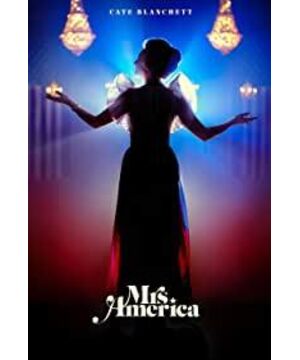"Ms. America" reproduces the civil political ecology of the feminist and anti-feminist movements in the United States in the 1970s. Various female activists in the liberal and conservative camps have launched a feminist bill for a long time. Ten years of competition. The sense of involvement of ordinary Americans in politics is truly astonishing. But the bill was aborted, and the long-running race ended with conservative success. The series features Phyllis Schlafly, the leader of the anti-feminist movement, as the protagonist, but his position is somewhat biased towards the feminist camp. Today, it is also a kind of reflection and criticism of the rising tide of conservatism. Cate Blanchett's performance is unremarkable, her powerful plasticity allows her to create an "anti-hero" role that has never been seen before: strong and weak on the outside, strong in faith and unavoidable in heart Conflict, "Mrs. America" is actually hypocritical and contradictory in nature. This spontaneous political figure seems to perform in front of people every day, and Blanchett is performing her performance to the fullest. While Phyllis's characterization is arc-like, what makes the series really stand out is the group portraits. The women in these political movements are all lively. In addition to the script's setting for each character and the excellence of the actors, this is also related to the structure of the episode. Although "Mrs. America" seems to portray the protagonist Phyllis, in fact, each episode features a certain character as the protagonist, and the structure of the serial has the flavor of a series of dramas, and it also successfully exerts the method of character-driven plot.
View more about Mrs. America reviews











